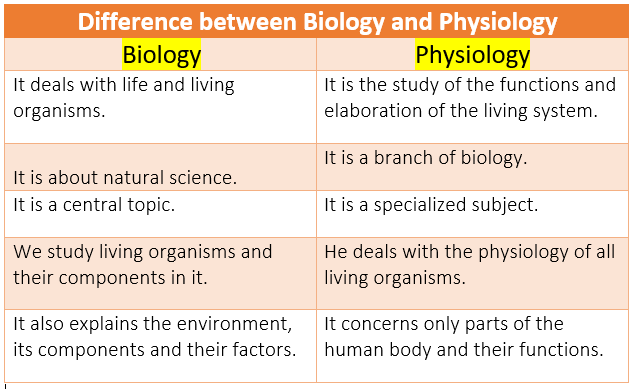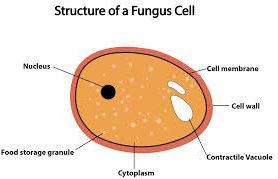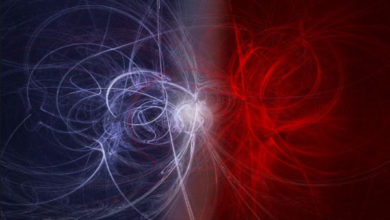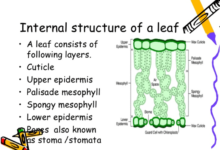Difference between Biology and Physiology
the major difference between Biology and Physiology is that biology is the branch of science and is the study of all living things called  organisms and these organisms include animals, plants, and bacteria. protists and fungi while Physiology is a branch of science that deals with the normal life phenomena exhibited by all living organisms.
organisms and these organisms include animals, plants, and bacteria. protists and fungi while Physiology is a branch of science that deals with the normal life phenomena exhibited by all living organisms.
Biology and Physiology are two different subjects, here, biology is an upper-level discipline than physiology. Biology is a natural science, which includes everything one can imagine in relation to life on Earth. The word biology derives from a Greek word, which refers to the study of life.
It is a vital subject because it explains the difference between living, not living, and the different biological processes that take place in a living system, how the different organ systems in our body, and much more work. Physiology is the scientific study of the functions and activities of living organisms, as well as their anatomy.
In the process of biological development, basic research methods of biology have been gradually formed, including observation and description methods, comparative methods, and systematic methods.
In the history of biological development, these methods have emerged in turn and become the main research means in a certain period. These methods are integrated to form a modern biological research method system and research framework. Modern biology is a huge knowledge system with many branches. Biology and physiology are linked internally to each other.
First-level discipline biology divides into biomathematics (including biostatistics, etc.), biophysics, biochemistry, Cell Biology, Physiology, Genetics, Radiobiology, Molecular Biology, Biological Evolution, Ecology, Neurobiology, Botany, Entomology, Zoology, Microbiology, Virology, Anthropology, Bioengineering, Biology, etc. Disciplines include 19 second-level disciplines.
Biology and physiology both are related to living organisms. Physiology is a second-level discipline under biology. It is a discipline that studies the various life phenomena of the biological body, especially the functions of the various parts of the body and the internal mechanism that realizes its functions.
The main task of physiology is to clarify the various normal life phenomena, the laws of activities, and their generating mechanisms, as well as the effects of changes in the internal and external environment on these functional activities and the corresponding adjustments made by the body. , And reveal the significance of various physiological functions in overall life activities.
Due to different research objects, physiology can be divided into microbial physiology, plant physiology, animal physiology, and human physiology. Animal physiology, especially mammalian physiology, and human physiology are closely related. They have many similarities and are often combined and studied. What we usually refer to as physiology is mainly the physiology of the human body and higher vertebrates. Both biology and physiology are related to all kinds of living organisms.
From the perspective of evolution and individual development, animal physiology can be divided into comparative physiology and developmental physiology. The former compares the physiological functions of invertebrates and vertebrates and explores how their life activities adapt to their environmental changes. In the vast variety of invertebrates, the study of insect physiology has a particularly important place. Biology and physiology haven’t similarities in their studies.
In addition to human physiology, there are other branches of physiology, including plant physiology, cell physiology, microbial physiology, and animal physiology.
Difference between Biology and Physiology in Tabular Form
BIOLOGY | PHYSIOLOGY |
| It deals with life and living organisms. | It is the study of the functions and elaboration of the living system. |
| It is about natural science. | It is a branch of biology. |
| It is a central topic. | It is a specialized subject. |
| We study living organisms and their components in it. | He deals with the physiology of all living organisms. |
| It also explains the environment, its components, and its factors. | It concerns only parts of the human body and its functions. |
What is Physiology?
It is one of the branches of biology, which is based on the study of vital organs within the body and the function of each member in it, how these organs work inside the body, and how they work during their response to external influences.
Physiology is the science that is based on the study of the functions and activities of living material, which include organs, cells, tissues, and phenomena and physical. In the field of study of human physiology, the following are the main systems upon which human physiology is based:
- Circulatory system:
It includes blood vessels, the heart, blood properties, and how blood circulation works in the event of health and disease.
- Digestive system:
It includes studying the liver, spleen, pancreas, and everything related to food from entering it to understanding when it leaves the body.
- Endocrine glands:
It includes the pituitary, thyroid, adrenal, gonads, and others. The immune system is the natural defense system of the human body.
- Integrative system:
It consists of sweat glands, sebaceous glands, skin, hair, and nails.
- Musculoskeletal system:
It consists of tendons, muscles, cartilage, and ligaments. The nervous system: memory, senses, emotion, and thought are studied.
- Urinary system:
It includes the kidneys, bladder, and others.
- Respiratory system:
It consists of the nose, pharynx, trachea, and lungs.
- Reproductive system:
It consists of the gonads and sexual organs.
Physiological studies are divided into three main sections:
General physiology: This type is based on the study of the characteristics common to different organisms such as humans, animals, and plants.
Special physiology: This type studies the functional characteristics of a particular type of animal or plant.
What is Biology?
It is a natural science that deals with living organisms and their life. It studies the structures, classifications, formation, and development of these living organisms.
Modern biology is a broad field that consists of many branches and sub-specialties, but it includes some general unified concepts that link its different branches and are followed
- Marine biology
Marine biology is the study of living organisms and sea creatures. Marine biology is often combined with other disciplines to form specific regions. Combined with oceanography, marine biologists are qualified to work in water, wetlands, and marine resource management, which is a rapidly growing biological area.
- Aquatic Biology and limnology
The field of biological research is inland water bodies, such as lakes, lagoons, rivers, and estuaries, including inland areas. It combines ecology and geology, as well as other sciences.
- Biochemistry
Biochemistry is the study of the chemical reactions required for life on this planet in a wide range of environments. Biochemistry usually studies chemistry at the cellular level and is closely related to microbiology.
- Astrobiology
Astrobiology, also known as exobiology, astronomy, and Exo-paleontology, studies the effects of space on living things on this planet. Therefore, it is involved in the search for space in the universe.
- Evolutionary biology
Evolutionary biology is the study of human evolution from the point of view of biology, fossil examination, and living specimens to better understand the origins of human evolution. Biology students who specialize in evolutionary biology usually have a postgraduate degree.
- Environmental Biology
Environmental biologists explore the relationships between plants and animals, including microorganisms, in their environment. Environmental biologists study the entire ecosystem, viewing it as a giant living organism. Therefore, environmental biology includes studies on the effects of industry and agriculture in this environment.
- Wildlife biology
Fauna biology treats all animals with vertebral columns and is a study of wild fauna species, their habitats, and their surrounding ecosystems. Both urban and rural fauna are protected.
- Biological Conservation:
Conservation biology is a struggle to preserve the biodiversity of the planet and encompass many species of animals and plants. The biology of the selected species is studied for links to science, ecology, and environmental extinction. Difference between Biology and Physiology
You May Also Like:




